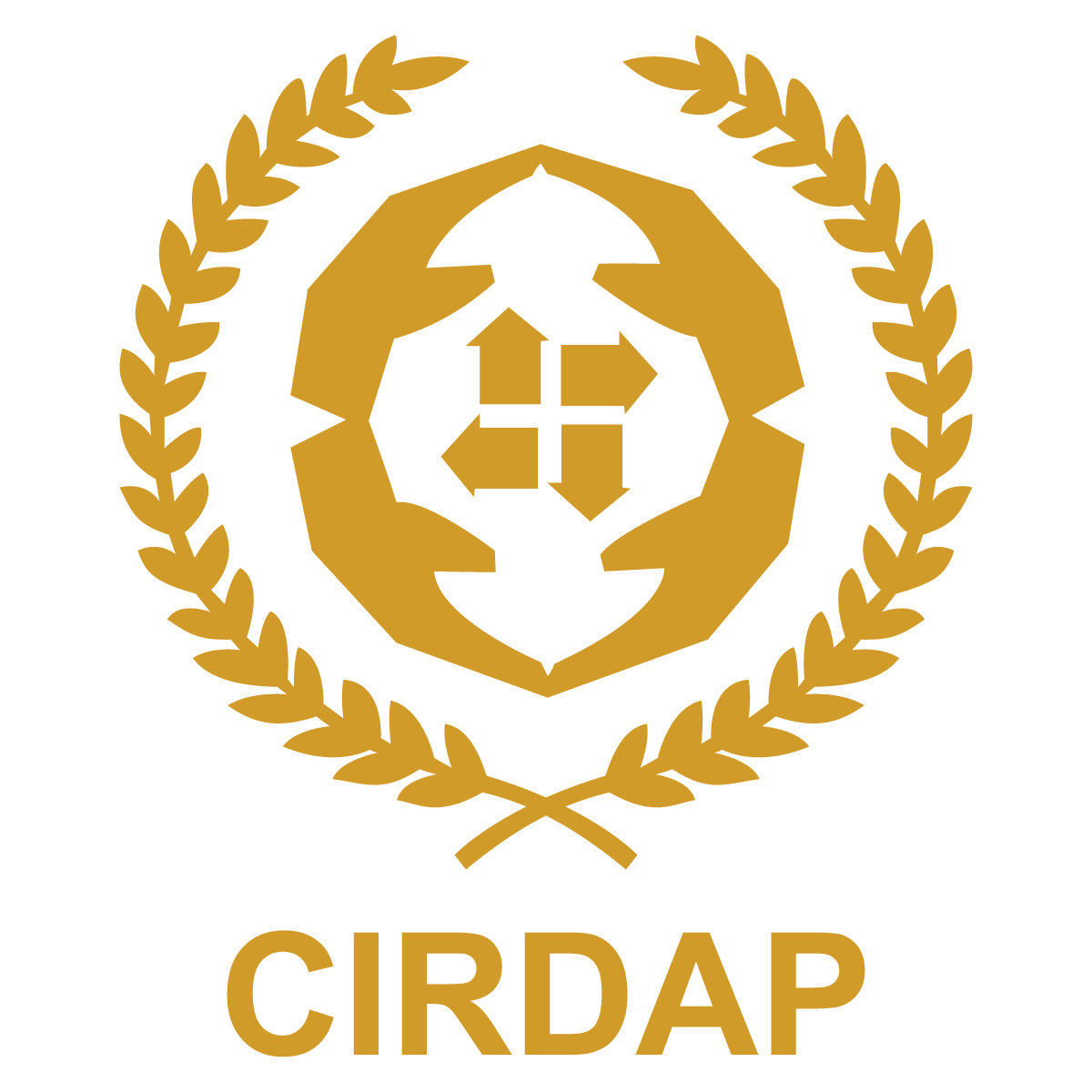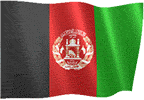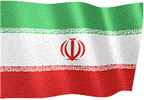RURAL HEARTBEAT
Transforming Disability to Ability for Happy and Prosperous Rural Communities
Asia and Pacific Region have a population of 4.8 billion out of which more than half live in rural areas. One out of seven on an average in the region belongs to disabled category and around 70 percent of Disabled categories such as physical, sensory, intellectual and behavioral living in rural areas. Holistic rural development is incomplete without the empowerment of disabled section in rural communities.
How to achieve inclusive development? Maintaining updated Disability Data along with degree of disability and geo location is very critical for this mission. Sharing this database with all the stakeholders regularly and using appropriately is needed for the time.
Mainstreaming the mission of ‘Disability to Ability’ in all ministries, developmental programs and customizing the provisions of the respective ministries to link with Disability Information System will be the major step to take advantage of all public programs for the benefit of Disabled youths. Accommodating flexibility and establishing the operational linkage with active NGOs needs institutionalization.
Establishment of Disability to Ability Incubation centers in NGOs is important to pilot test new ideas, Livelihood opportunities need special considerations. We need to create success stories and path which would assist easy upscaling at national level with much ease effectively by all stakeholders
Special frequent campaigns to sensitize the society about Disability and to transform sympathy to empathy is required. Society led Disability management efforts are more sustainable by involving family, relatives, Neighborhood and institutions. Social media can enhance effectiveness. Present generation is more empathetic to disability but needs constant sensitization and mechanism to involve them in management of disabled population. We need triggers
How can we promote livelihood opportunities for Disabled Youth? Challenging Stereotypes, Inclusive Skills Development, Promoting Self-Employment, Leveraging Technology, Ensuring Physical Accessibility, Strengthening Support Networks, Fostering Partnerships, Involving Disabled Youth in Design, Improving Access to Finance, effective Policy Implementation and Awareness would energize the Mission Disability to Ability
Approaches for rehabilitation of rural disabled youth, focusing on practical and scalable solutions includes Tele-rehabilitation Services, Mobile Health (mHealth) Units, Low-Cost Assistive Devices, Community-Based Rehabilitation (CBR) Models, Digital Skills & E-commerce Training, Integrated Therapeutic Income Generation Programs, Augmented and Alternative Communication (AAC) Apps, AI-Powered Learning Software, Peer Mentoring Networks, Accessible Physical Modifications,
Several success stories across the globe have proved that diversified empowerment initiatives yielded very good results such as Annapurna Social Mobility Model, India in tailoring and food processing, Novib Leprosy Livelihood Projects, Nepal in vegetable farming ,IFAD’s Innova tech 2.0 Agri-Startups, In Guatemala and Honduras, startups like Leprosy-inclusive groups selling produce online, World Vision’s Disability-Inclusive Agriculture, In Ethiopia and Kenya in adaptive beekeeping and dairy co-ops, RYCAAD Youth Agri-Coop, Uganda in fair trade of rice and maize , Handicap International Livelihood Hubs, Vietnam in bamboo weaving, LEAP Ethiopia in greenhouse vegetable startups, Globe Federation of ILEP’s Skill Centers, Brazil in Agri-processing , Phinda Zikalala’s Youth Disability Agri-Project of South Africa : A BRICS-backed initiative in hydroponics
Holistic Rural Development is incomplete without MISSION DISABILITY TO ABILITY
Rural Women, CIRDAP, and the Road to Empowerment
CIRDAP celebrated International Rural Women Day on 15th October in presence of 14 inspiring women from member countries namely Sri Lanka, Myanmar, India, Bangladesh, Pakistan, Iran and Nepal. It was indeed an opportunity to recognize and honor the dedicated rural women and to inspire the rest through their success stories. Manjulika Chakma who established Bain Textiles during 1965 to empower rural Tribal women in Bangladesh led the memorable program.
The International Day of Rural Women stands as a beacon, reminding we all that rural women are the primary engine of food security and local economies. Yet, their potential remains constrained by deep-seated socioeconomic challenges that impede our collective progress toward the Sustainable Development Goals (SDGs).
Despite their immense contributions, the status of rural women in the Asia-Pacific is one of significant disparity. The challenges they face are not merely economical; they are structural, hitting them hardest in critical areas. Economic Invisibility and Exclusion due to unpaid and informal labor, lacking equal rights to landownership or the necessary collateral to secure formal credit adds to the grim situation. This economic constraint is amplified by a significant digital gender divide, with digital literacy often lagging, preventing access to modern market information and financial technology.
As primary custodians of natural resources, rural women are on the front lines of the climate crisis, suffering food stress leading directly to higher rates of household malnutrition and poverty. On the other hand, Policy Marginalization is rendering key development programs ineffective at the grassroots level.
To address these barriers, CIRDAP actively promotes, Research, Training, Webinars and exchanges successful grassroots innovations across its member network. CIRDAP research program on sensitizing the stakeholders on Gender Responsive Budgeting in Nepal in Collaboration with Local Development Training Academy generated valuable impact and lessons. Success stories of inspiring rural women are in pipeline and International Leadership Development Training for Women Leaders is on the cards. Besides, showcased several successful women leaders through webinars.
The Power of Collective Action through Women-led Self-Help Groups, Agri-Cooperatives, Leaping the Digital Divide, Building Resilience through Climate Innovation and developing effective women leaders are the priority now. By prioritizing these factors, CIRDAP reaffirms its commitment to transform the lives of rural women, positioning them not just as beneficiaries, but as the central drivers of a prosperous, resilient, and integrated Asia-Pacific future.
LEARNINGS FROM BEYOND BOARDERS
Greetings from CIRDAP again. In September, I was fortunate to be part of Michigan State University’s International Experts Study Visit Program to MSU. Michigan, USA on invitation. The event brought together representatives from Taiwan, Kenya, India and CIRDAP, representing Asian and Pacific countries which are working for farmers. It was a fantastic learning curve, diving into MSU’s Agriculture and rural development work-we presented country papers, toured research stations, labs, extension centers, farmers’ markets, and even visited and interacted with practicing farmers besides learning about activities and opportunities with MSU.
Visited the Okemos farmers’ market: an interesting community-driven spot backed by MSU, where local farmers sell fresh fruits, veggies, fish, meat, handicrafts, baked goods, and more-plus entertainment with live agriculture-themed music! Urban folks flock there for direct from-farmer produce, keeping rural passion alive. The system promotes local production for local consumption where consumers get fresh farm produce from markets straight from farmers for a reasonable price where there are no intermediaries. The system is also transforming the farmers as Agripreneurs. Visit to Taylor Shoemaker’s home-based farm-she’s this young trailblazer teaching school kids and city dwellers Agriculture while growing and selling fresh produce through her own mini-market within the farm. She has her own primary processing and storage. Her selfsufficient setup is perfect inspiration for our Asian-Pacific farmers.
Back home, CIRDAP has launched a Project Facilitation Center to connect CIRDAP experts and partners with project funding opportunities through an institutional platform with a win win mechanism. Plus, we have rolled out Artificial Intelligence training for daily operations of CIRDAP for its employees, and signed new MOUs with National Chung Hsing University, Taiwan, Non-Aligned Movement Center for South-South Technical Cooperation based at Jakarta, Indonesia , Bangladesh Sustainable and Renewable Energy Association and Asia Network for Sustainable Agriculture and Bio Resources (ANSAB), Nepal. More partnerships are coming.
Learning from all directions and partnerships in all sectors to reach rural communities better
Evolving with Time, Step by Step for Rural Communities
The 40th Technical Committee Meeting of CIRDAP was held in Yangon, Myanmar, with full participation from all 14 member countries: Fiji, Philippines, Lao PDR, Vietnam, Thailand, Indonesia, Malaysia, Myanmar, Bangladesh, India, Nepal, Sri Lanka, Pakistan, and Iran. The meeting approved the 2026-27 Action Plan and expanded country-level roles, with Myanmar taking over the chairmanship from Malaysia for 2025-26.Notable deliverables in 2025 include the early release of the Rural Development Report (four months ahead of schedule, reaching 1.8 Lakh stakeholders), Introduction of selffinanced programs, Strengthening social media outreach and the inaugural World Rural Development Day celebrations marked by initiatives like village outreach in Fiji, rural schemes awareness in Andhra Pradesh, India, and a ministerial exhibition, award ceremony in Myanmar. CIRDAP’s Consultancy Wing is active, the Project Facilitation Center is operational, and the Rural Innovation Challenge has been initiated, with 16 new activities planned for 2026-27. The wholehearted support from member countries strengthened the role of CIRDAP as an intergovernmental organization focused on rural development, emphasizing cooperation, efficiency, and impactful programs.
Towards Integrated, Inclusive, Sustainable and Enterprising Rural Development
CIRDAP celebrated its 46th Foundation Day alongside First World Rural Development Day (WRDD) – 2025, highlighting a shared vision of Integrated, Inclusive, Sustainable, and Enterprising Rural Development. Hosted in Dhaka, Bangladesh, the event brought together dignitaries from CIRDAP’s member countries-including India, Nepal, Sri Lanka, Bangladesh, Myanmar, Vietnam, Indonesia, Philippines, and IR Iran-and partners like BIMSTEC, FAO, and SAARC. Since its inception on July 6, 1979, CIRDAP has been a catalyst for rural progress across Asia and the Pacific. Over 212 Research projects have addressed critical needs of Rural Development. Through 255 international training programs, CIRDAP has empowered over 8,000 executives with skills in all areas of SDGs. Knowledge-sharing platforms, such as the Asia Pacific Journal of Rural Development, Voice of CIRDAP e-bulletin, and Rural Development Reports connected stakeholders, while the new CIRDAP Knowledge Circuit fosters collaboration. WRDD 2025 saw vibrant celebrations across member countries like Fiji, IR Iran, Myanmar, and India. Highlights of the CIRDAP celebrations included the launch of a WRDD poster, a special edition of Agriculture World by Krishi Jagran, and a book on Rural Tourism in Asia and the Pacific. Looking forward, CIRDAP plans to launch a Digital Rural Development Library, expand its member network, and enhance programs like faculty exchanges and scholarships. CIRDAP extends heartfelt thanks to member countries for championing WRDD and partners for their unwavering support. Together, we’re not just transforming rural communities-we’re nurturing their heartbeat, dreams, building a sustainable and prosperous future for all.
Let us together strengthen Integrated, Inclusive, Sustainable and Enterprising Rural Development
Digital Agriculture: The future of Agricultural Extension
Across the Asia-Pacific, from the coral reefs of Fiji to the mountains of IR Iran, 4.3 billion rural residents face a critical challenge: by 2050, they need 77% more food to sustain our region, yet climate change threatens a 15-20 % productivity drop, impacting rice fields in Vietnam and fisheries in Indonesia. Digital agriculture is one of the prime solution to this food security crisis.
The region’s literacy rate averages 70% in rural areas, with women at 65%, but digital literacy lags at 25% compared to 45% in urban centers, hindering access to transformative tools. With 1.73 billion mobile subscribers (62% of the population) and 50% mobile internet penetration, the Asia-Pacific is poised for change. Digital tools like IoT, sensor networks, data security, and public-private partnerships have the potential to connect every village in the region.
In Indonesia’s Sulawesi, Aruna’s platform links Konawa fishers to global markets, boosting incomes by 15% with real-time pricing. In Bangladesh’s Cox’s Bazar, Kalu Fakir Para farmers use ICT apps and Farmer Field Schools, slashing rice production costs by 20%. The Philippines’ Bicol Region adopts Farmmonaut for precision irrigation against typhoons. Vietnam’s Ha Tinh province leverages the “Lang So” e-handbook, integrating 30 local digital platforms. Myanmar’s Mandalay classrooms thrive with UNESCO’s ICT training for teachers, while Iran’s Khorasan villages market handicrafts via the Transaction Services Model. Thailand’s Lampang Mae Moh doubles incomes with EGAT-supported vertical farming, and China’s Guizhou lifts 70 million from poverty through e-commerce hubs since 2013.
CIRDAP calls for mandatory digital adoption by extension workers, literacy campaigns from Fiji’s coral shores to Nepal’s Himalayas, and mobilizing local networks like Indonesia’s KUDs or Sri Lanka’s Samurdhi groups. Expand connectivity, forge cross-border partnerships, and tackle regulatory barriers. Let’s ensure every Pacific Islander, Southeast Asian farmer, and Central Asian herder thrives in a sustainable, inclusive digital future.
Climate-resilient Food Security and Safety for Sustainable Rural Development
Climate-resilient food security and safety comes through building systems that can withstand and adapt to the impacts of climate change, ensuring food availability and access for all. This involves promoting Climate Smart Agricultural practices, diversifying food sources, and strengthening social safety nets to protect vulnerable populations.
Asia and the Pacific are home for more than 60% of the global population. More than half of the population of Asia Pacific countries lives in rural areas, and more than 60 % percent of rural population depends on Agriculture. On an average, 16 percent of the GDP of these countries contributed by Agriculture, which includes Agriculture, Fisheries, and Forestry. Hence, Climate Action is critical for the Agriculture dependent Asia Pacific Economy.
Present food grains production in the region is 1313 MT in 2021, with half a Climate-resilient Food Security and Safety for Sustainable Rural Development billion population being under nourished as per FAO and by 2050, the food grain production need to be increased by 77% to meet the demand whereas the climate change is expected to reduce food production by 15 – 20%. Hence, Climate resilient food security measures should find priority in the region.
Asia Pacific region, while responsible for 55 % of global greenhouse gas emissions, is highly vulnerable to climate change due to factors like extreme weather events, sea level rise, poverty, increasing temperature, and high reliance on climate-sensitive sectors ie Agriculture. Besides, in 2030, water requirement is set to exceed supply by 40% Studies identify Asia Pacific as one of the regions requiring substantial adaptation investments to address climate change risks. By investing $ 2 trillion annually during 2022-30, the region could prevent projected damages and loss of GDP growth of Asia Pacific countries, providing substantial returns. However, limited control on climatic variations and limited resources pose big challenges in the way.
Key aspects of Climate-resilient food security and safety where we need to focus are Aggressive Promotion of Climate-smart Agriculture, Water Management, Soil health, Integrated Farming Systems, Community-based adaptation, Government and NGO support, Agrometeorological Extension services, Diversification of food sources, Improved access to food, Strengthening social safety nets, Investing in infrastructure and Climate action and Promotion of Secondary Agriculture.
In order to move forward, Mainstreaming Climate Resilient Agriculture in all developmental programs, Sensitization of Farmers, Investing in Research and Development, Strengthening partnerships, Incentivize Climate Resilient Agriculture promoters and programs, Promoting sustainable consumption, Popularizing Ecofriendly farming enterprises namely Bee Keeping, Millets, Bamboo, Plantation crops, Agri Tourism, solar farming and Agro Forestry may be expanded supported by branding and exporting
Climate change has no political boundaries, we need to work collectively
CIRDAP KNOWLEDGE CIRCUIT-Partnership For Learning And Development
Centre on Integrated Rural Development in Asia and Pacific(CIRDAP) is an United Nations initiated Intergovernmental organization established in 1979 to strengthen Rural Development Systems in Asia and Pacific countries. At present, there are 15 member countries namely Afghanistan, Pakistan, India, Bangladesh, Nepal, SriLanka, Myanmar, Thailand, Vietnam, Lao PDR, Philippines, Indonesia, Malaysia, IR Iran and Fiji. One of the important objectives of CIRDAP is to create learning platforms Where member countries exchange Knowledge and learn good practices on Rural Development from each other.
Majority of the member countries of CIRDAP have their own National Institute of Rural Development to take care of Research, Training, Policy Advocacy, Documentation and Dissemination. In few member countries where National Institutes are not there, government designated Focal points to liaisoning with CIRDAP on Rural Development issues. The institutes or the Focal points are members of Policy body of CIRDAP.Hence,CIRDAP has close organic linkage with Rural Development Systems of all the member countries. This linkage is serving as critical partnership for facilitating mutual learning between member countries. CIRDAP is happy to initiate a LEARNING and DEVELOPMENT Platform ie CIRDAP KNOWLEDGE CIRCUIT involving National Institutes and Focal Points of CIRDAP Member Countries to mutually benefit interms of learning on structures, functions, policies, programs, innovations and impacts and to establish a long lasting institutional level linkages for ensuring real time learning and sharing. The platform also focus on Institution building, designing Rural Development models and learning from international experiences.
The CIRCUIT operates on Digital and Physical mode in which national institutes selected on a rotational basis give webinar in which important activities and achivements would be discussed followed by visits of all other heads of national Institutes and Focal Points to the same institute where they spend time on learning about the structure, function, policies, programmes, innovations,experiences and impact of the institute programs and the Rural Development Programs implemented in that country.
CIRDAP KNOWLEDGE CIRCUIT is organised in all the member countries on rotation basis where the heads of the organisations would get opportunity to meet with their counterparts regularly to share and learn, establishes organic linkages between institutions which is a sustainable partnership on CIRDAP platforms. Second stage of the CIRCUIT is to establish CIRDAP DIGITAL LIBRARY ON RURAL DEVELOPMENT FOR ASIA AND PACIFIC where existing physical libraries of Rural Development in member countries will be digitised and linked to CIRDAP platform where not only institutions within member countries but also outside and most importantaly every professional working at grossroot level has the opportunity to update their knowledge on realtime basis at no cost. Digital Library needs wide publicity and digital literacy for effectiveness. At third stage, CIRDAP would encourage the institutes to exchange the faculty on rotation basis covering all member countries. Thus, Webinars,Exposure Visits,Digital library and Faculty exchange together called as CIRDAP KNOWLEDGE CIRCUIT which ensures a sustainable knowledge partnership among member countries facilitated by CIRDAP in Rural Development.
First in the CIRCUIT series has been started with National Institute of Rural Development and Panchayati Raj, Hyderabad, India where Director Gereral had already given webinar and the exposure visit of Institutional Heads is schduled in June,2025.
A Small step in this long journey has been already initiated.CIRDAP Seeks the support of all member countries to make CIRDAP KNOWLEDGE CIRCUIT a grand success
Food Systems Approach is Critical for Rural Development
Food is critical for survival of the mankind. However, 402 million people in Asian and Pacific is undernourished. That means, 56% of the total global undernourished population lives in Asia and Pacific region. It is pertinent to recall here that nearly half of the Asia and Pacific population lives in rural areas. Hence, Food System Approach is critical for Rural Development.
Food System Approach considers Food not just as individual product. But as a complex system encompassing all aspects of food production, Processing, distribution, consumption and waste besides achieving food and nutritional security, while addressing, Social and environmental challenges.
Hence all the system players need to be involved in Food System Approach. Educating the farmers and fishermen who produce the food is the foundation activity in this direction. Empowering farmers to decide what to grow, how to grow, how much to grow while considering social and ecological aspects is important. Judicious use of fertilizers and pesticides, CIRDAP Tenure of Director/Director General Director: Director General Dr. P. Chandra Shekara 10 Sep.2024 ensuring water use efficiency, Careful harvest and post-harvest handling besides taking active participation in value chain to gain additional employment and safeguarding Nutrition and income ultimately leading to sustainability. Group approaches is advisable to farmers to handle these interconnected and multidisciplinary
activities.
Till then, sensitizing rural aggregators, local Traders, wholesale dealers and retailers on wastage, food safety and nutrition are useful by ensuring incentives. Agri Startups. Entrepreneurs, Agri cooperatives, farmer producer organizations and Agri business companies play important role at this stage.
Consumers who are the kings in the Food System Approach can transform the system efficiency by preferring ecofriendly and nutrition sensitive food products. This happens through sustained consumer education. Consumers have the capacity to drive the direction of food markets.
Most importantly, changes should start at home and village. The homemakers may be sensitized on nutritional aspect to be considered at the level of preparation and storage. Thus, every home becomes change agent. This should involve no cost interventions. Every home has the capacity to Support its own nutritional security through kitchen gardening in the backyard, which can be maintained in leisure time. Encouraging seed exchange amongrural communities, makes the food system approach economical and sustainable.
Education and Technologies need to help all the above stakeholders to perform their role effectively while Policies and programs would ensure upscaling and sustainability.
Agriculture and line departments have the challenging role in operationalization of the sustainable Food System Approach. This needs broadening the very scope of functioning of Agriculture departments, Research institutions in terms of Shifting from mere production to Food System Approach.
-
Heartbeat 6:
Balancing Emerging Ideas and Ground Realities -
Heartbeat 5:
Technology and Partnerships -
Heartbeat 4:
LET US BE THE CHANGE
Dear Esteemed Partners,
Artificial Intelligence which is widely debated in the world has huge potential in Rural Development too. In Agriculture, for Precision Farming, Crop Simulation Modules, Market Prediction and Supply Chain Optimization. Whereas in Health Care, has the potential to
assist in Remote Diagnosis, Monitoring, Personalized Treatment Plans, Optimizing Resource Allocation and Early Disease Detection. Education sector can utilize AI in Personalized learning, Automated Grading and Feedback system and Resource Management. In Rural Infrastructure Development, AI can assist in Smart Grid Development, Infrastructure Maintenance, Waste Management and Transportation Planning. CIRDAP has made two important initiatives in this direction. Firstly, to sign MoU with University of New Mexico, USA to use Extension of Community Health Organizers (ECHO), a no-cost digital platform to build capacity of Rural Extension Stakeholders. Also organized a webinar on use of AI in Agri supply chain Management which received wide appreciation.
CIRDAP has taken initiative to strengthen Micro, Medium and Small Enterprises in Rural areas by organizing an international program at National Micro, Medium and Small Enterprises (nimsme), India which was attended by five member countries.
CIRDAP is closely working with Network for Development of Agricultural Cooperatives in Asia and Pacific (NEDAC) to strengthen Agri cooperative’s role in Rural Development through a MoU and planning an international training Program in July 2025. Similarly strengthening Research-Application linkage through working with Asia Pacific Association of Agricultural Research Institutes (APAARI), An Intergovernmental Organization.
Impact on the ground is concerned, CIRDAP Research projects on Gender Responsive Budgeting in Nepal, Transgender Livelihood in India and Women & Youth in Rural Development in Sri Lanka are progressing in right direction.
To have wider impact, I would like to appeal through this platform to CIRDAP Experts and partner Institutions to join hands with CIRDAP to work on impactful projects which also provide policy learnings to member countries With Warm Wishes
I would like to wish all the CIRDAP family, a Prosperous, Peaceful and Happy New Year. Let us hope that this year gives an opportunity to work collectively to bring smiles on the face of Rural Communities across the region.
One of the biggest recognition to contributions of CIRDAP came from United Nations which declared 6th July of every year as World Rural Development Day which is Foundation Day of CIRDAP.CIRDAP takes this recognition humbly and leverages for attracting attention of the member countries and the Globe on the challenges faced by Rural Development sector and to garner support for collective action. A Signature campaign launched by CIRDAP on 1st January, 2025 attracted the support of several professionals working for Rural Development. Several other initiatives will be rolled out in the days to come. Esteemed partners are requested to organize programmes in support of World Rural Development Day and share in the dedicated website of CIRDAP.
United Nations also declared 2025 as International Year of Cooperatives signifying the role of cooperatives in Development. CIRDAP is in the process of finalizing the Capacity Building plan for Agri-Cooperatives, Planning for an International Training Programmme on Startups, Technology, Entrepreneurship and Partnerships for vibrant Agri-Cooperatives and aligning with global organizations namely World Cooperation Economic Forum and Network for the Development of Agri-Cooperatives in Asia and Pacific (NEDAC). CIRDAP expects Agri-cooperatives to impact multi-dimensional Rural Development positively.
Technology plays very important role in reaching the unreached in the region through cost and time effectiveness. CIRDAP is working on linking knowledge institutions in the region on digital platform for facilitating knowledge dissemination on real time basis. Besides, working on multi-dimensional digital tools for reaching all stake holders in the CIRDAP member countries which is expected to be functional in the months to come. CIRDAP is working on CIRDAP KNOWLEDGE CIRCUIT aiming at capacity building of Knowledge Institutions in member countries through webinars and Exposure visits.
All the above efforts require Resources, Technology and most importantly Partnerships. Grateful to all partners who are actively associated with CIRDAP for benefitting Rural Communities.
Let us be Together for Rural cause.
I am really excited to welcome New Year 2025 along with you all partners as it is going to be first year of celebration of WORLD RURAL DEVELOPMENT DAY (WRDD) declared by United Nations to be celebrated on 6th July, 2025.It is foundation day of CIRDAP declared in recognition of the contribution made by CIRDAP in Rural Development in Asia and Pacific region. CIRDAP sees this as a great opportunity to draw the attention of the world towards Rural Development in general and SDGs around Rural Development in particular. CIRDAP would make all efforts to transform WRDD celebration more meaningful and also Impactful with the active participation of Member countries, Embassies, NGOs, Partner Institutions and specifically CIRDAP Experts.
It is sincerely requested to chalk out any suitable programme namely Awareness Campaigns, Trainings, Seminars, quizzes, rural games, meetings, Social media campaigns, competitions etc. at your workplace and share with CIRDAP to magnify the impact through dissemination.
Empowerment of Rural Communities comes through Awareness and Education. I hope you will join this effort through your impactful activities which would be showcased in www.worldruraldevelopmentday.org.
CIRDAP has the ambitious goals to expand members’ base, implement impactful activities, Useful publications, webinars and enriching the contribution through strategic partnerships. More Knowledge Exchange platforms and learning opportunities would be created in the days to come. Hope for your positive and active support through which together we can create synergetic impact on Rural Communities.
My heartfelt New Year wishes from CIRDAP family to you all and wish a grand success in all your professional and personal life.
As Mahatma Gandhi said “BE THE CHANGE YOU WISH TO SEE IN THE WORLD”
LET US BE THE CHANGE
-
Heartbeat 3:
Agri cooperatives to Rejuvinate Rural prosperity -
Heartbeat 2:
Provide Urban facilities in Rural Areas -
Heartbeat 1:
Together,We can win
“ONE FOR ALL AND ALL FOR ONE’ is the philosophy of Cooperative movement which suits to the philosophy of CIRDAP, a regional organization having 15 member countries. There are 9.3 Million Cooperatives in 15 CIRDAP member countries, out of which less than 5 percent are Agri Cooperatives. The performance of these Agri Cooperatives is critical for Agriculture and Rural development. The Amul of India, which is a global success story, benefits 16 million farmers every day. The Nangpo Dairy cooperative of Ratchubury province of Thailand demonstrated a sustainable marketing model of selling the milk to government to feed the school children. Thanks to Government of India for funding a project to design a impactful training module for Agri cooperatives management for which CIRDAP is closely working with India, Thailand and Bangladesh. Strengthening of cooperatives in general and Agri cooperatives in particular is need of the hour.
Micro enterprises need to be promoted in rural areas, which would reduce migration of rural youth, Create urban amenities in rural areas and provide employment opportunities to rural communities especially women. Happy to share with you all that, CIRDAP has inked MoU with National Institute of Micro, Small and Medium Enterprises, India, completed a webinar on Micro enterprises in Rural Development and also planning for an International training in February, 2025.
I had the opportunity to visit a school run by an NGO benefitting tribal students in Bangladesh. This school demonstrates the necessity of strengthening Public Private Partnership in Education especially in rural areas. Also visited a garment factory which employs 4000 people mostly women. Garment sector can benefit, Agriculture, Employment and Export, besides entrepreneurship, deserve great attention to achieve sustainable Rural Development.
Thank you all for your wholehearted support to CIRDAP activities and enriching the strength of CIRDAP to serve rural communities better.
I am happy to share the Second Edition of Voice of CIRDAP with you all. Rural Development depends on prosperity of villages. Agriculture development is central to village prosperity. Unabated fragmentation of land due to legal and social reasons, making Agriculture poorer and unprofitable. The problem is aggravated by raising cost of inputs and laborers. This development is discouraging young and educated to stay back in villages. The migration of rural youth to urban areas in search of jobs is turning villages as old age homes. This migration has also affected urban development.
Bringing smart technologies to Agriculture and Creating urban facilities in rural areas is expected to reduce the migration of youth from rural areas. Social mobilization of youth into groups, introducing high-production technologies to Agriculture, Skilling Youths and linking them to urban market directly may be effective in this direction. Food processing not only create jobs for rural population, reduce the wastage, ensure the profitability in Agriculture and acceptability of rural products in urban areas. Rural Women can greatly contribute in this sector. Rural Tourism of Malaysia, rich handicraft of Iran like additional income generating activities definitely attract and retain youth in village. Slowly, it may lead to reverse migration relieving costly and congested cities. Malaysia made a mark in promoting urban facilities in rural areas and removing the rural tag gradually has significantly contributed for retention of youth in villages. Can we provide urban facilities in rural areas?
I am privileged to take up the responsibility as Director General of CIRDAP, which works for empowering the rural people.
Being born and brought up in a village and hailing from a farming family, this responsibility, serves as a great opportunity for me to serve the people whom I represent.
It is also a great news for CIRDAP family to have 6th July declared as World Rural Development Day (WRDD) every year by United Nations General Assembly in recognition of service rendered by CIRDAP to the region in Rural Development. It is to mention here that 6th July is also Foundation Day of CIRDAP.
It is the time to re dedicate ourselves to the cause of rural community. CIRDAP is highly empowered to have Honorable Ministers of Rural Development of all the 15 CIRDAP Member Countries (CMCs) as members of Governing Council (GC), all the Secretaries of Rural Development of member countries as members of Executive Committee (EC), prestigious National Institutes of Rural Development as Technical Committee m(TC) members. Their guidance is always source of wisdom, experience, expertise and dedication to CIRDAP family.
CIRDAP has the great potential to reach the unreached through CIRDAP member countries by creating cross learning opportunities through regional platform to acquire innovation, good practices and success stories.
While I start this responsible journey, overwhelmed by the support extended by the CIRDAP member countries, the Governing Council (GC), the Executive Committee (EC), the Technical Committee (TC) and all other Stakeholders.
The first step in this journey is to start this monthly eBulletin of CIRDAP “Voice of CIRDAP” to get connected with all the stakeholders regularly.















